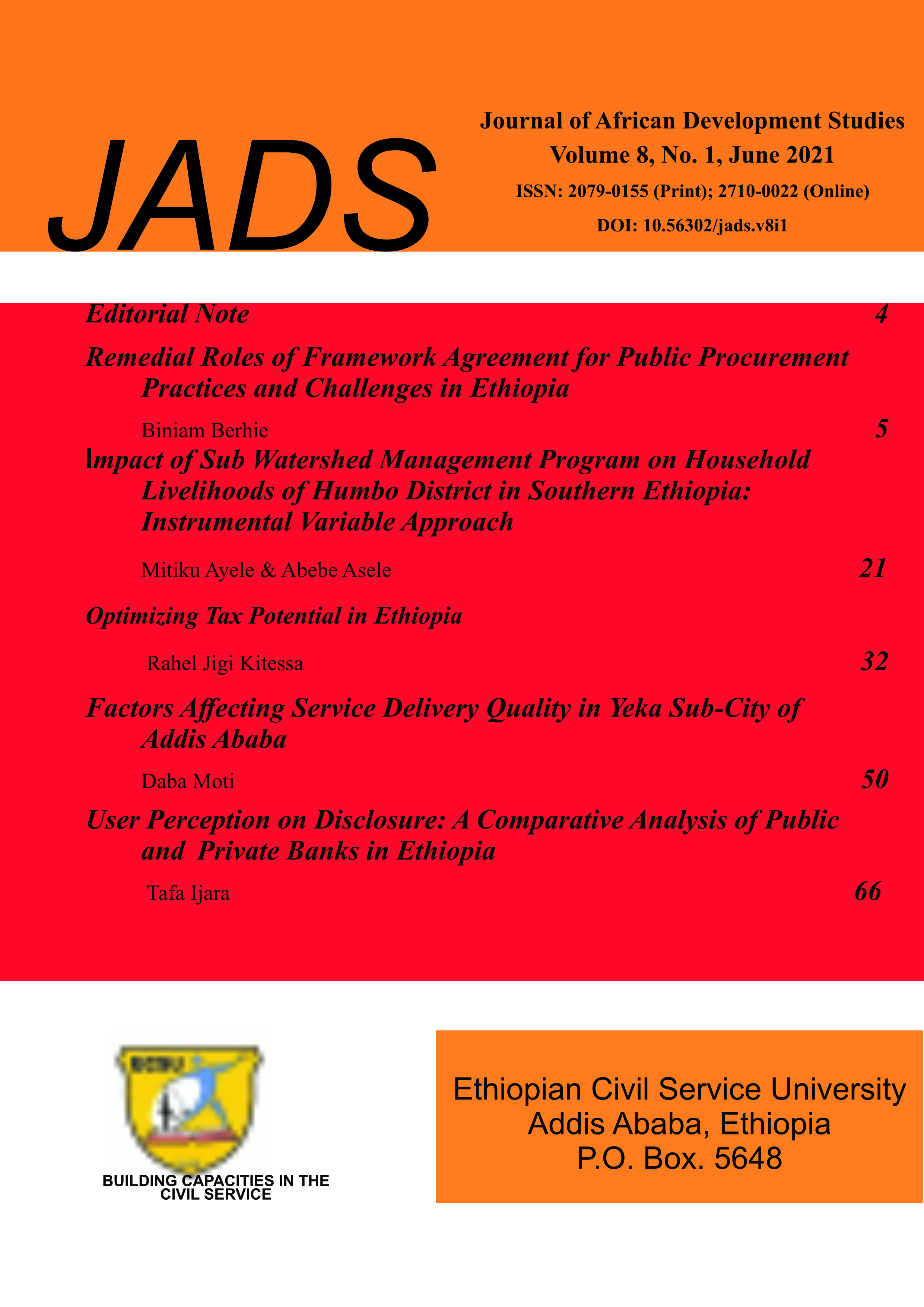Remedial Roles of Framework Agreement for Public Procurement Practices and Challenges in Ethiopia
DOI:
https://doi.org/10.56302/jads.v8i1.3095Keywords:
Framework, Procurement, Practices, Efficiency, EthiopiaAbstract
Administrative and technical inefficiencies reduce the value creation by centralized public procurement practices. The main aims of the study are to examine the efficiency of Framework Agreement (FWA) procurement practice, to analyze the perception towards the frame and to identify the major challenges of FWA based public procurement in Ethiopia. The study employed a descriptive approach using an exploratory and explanatory design on data collected by survey questionnaire and key informant interview. The result indicated that procurement planning, bid solicitation process, goods receiving and payment and conflict management were significant positive predictors of efficiency of FWA procurement practices. Further, inadequate legal framework, loose coordination, incapable suppliers and market set-up, lack of capable and committed procurement professionals, low quality and quantity, delay on delivery, and loose contract management are the major challenges affecting the efficiency of FWA procurement. Moderate perception towards the frame by the procurement professionals has been identified. In conclusion, FWA procurement is yet to meet the purpose of ensuring value for money. Finally, policymakers and practitioners need to give the required attention to improve the efficiency level of FWA procurement of the country.

Downloads
Published
How to Cite
Issue
Section
License
Copyright (c) 2021 Journal of African Development Studies

This work is licensed under a Creative Commons Attribution-NonCommercial-ShareAlike 4.0 International License.




